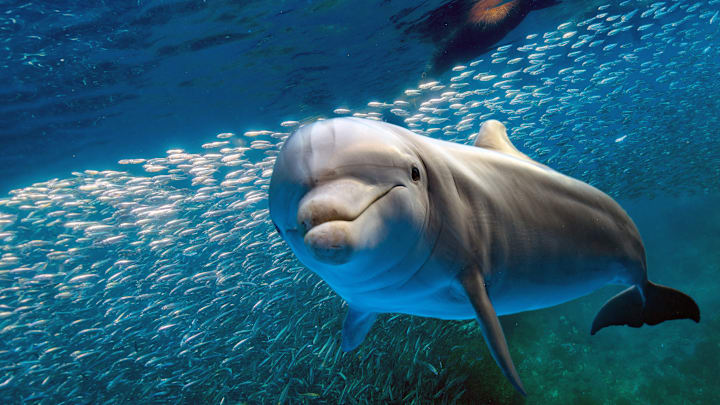Few non-human species can equal the intellectual capacity of dolphins, which have long been renowned for their brainpower. Whether the latest research about these creatures bolsters or weakens that reputation depends largely on how you feel about drinking pee.
A new study published in Science Advances has demonstrated that common bottlenose dolphins (Tursiops truncates) use urine samples to figure out friends from strangers. The authors, from the University of St. Andrews in Scotland, made the conclusion after observing dolphins swimming through plumes of urine. Waste left over from familiar dolphins seemed to get more attention than urine left by comparative strangers. The urine curiosity coupled with known dolphin communications—like whistling—seems to indicate dolphins can recognize peers by the contents of their bladder.
The dolphins were observed at interaction facilities in Bermuda and Hawaii, where the animals live in seawater lagoons. Researchers used urine samples from known dolphin associates in a pod as well as urine from other dolphins to see if the captive dolphins would react differently. Urine from “friends” was taste-tested by dolphins for three times longer than the alternative.
The dolphins were also more interested in urine when it was paired with recordings of the familiar whistles of dolphins they had spent time with. Exploring the urine could help dolphins recognize friendly occupants as well as potential rivals, even if they don’t use vocal signals.
What exactly dolphins are detecting in the urine of their favored company is not yet clear, though it could potentially be protein or the lipids (fat) content of the waste. (It’s not smell: dolphins have little in the way of olfactory abilities.) More search into dolphin urine preferences will be needed.
[h/t National Geographic]
